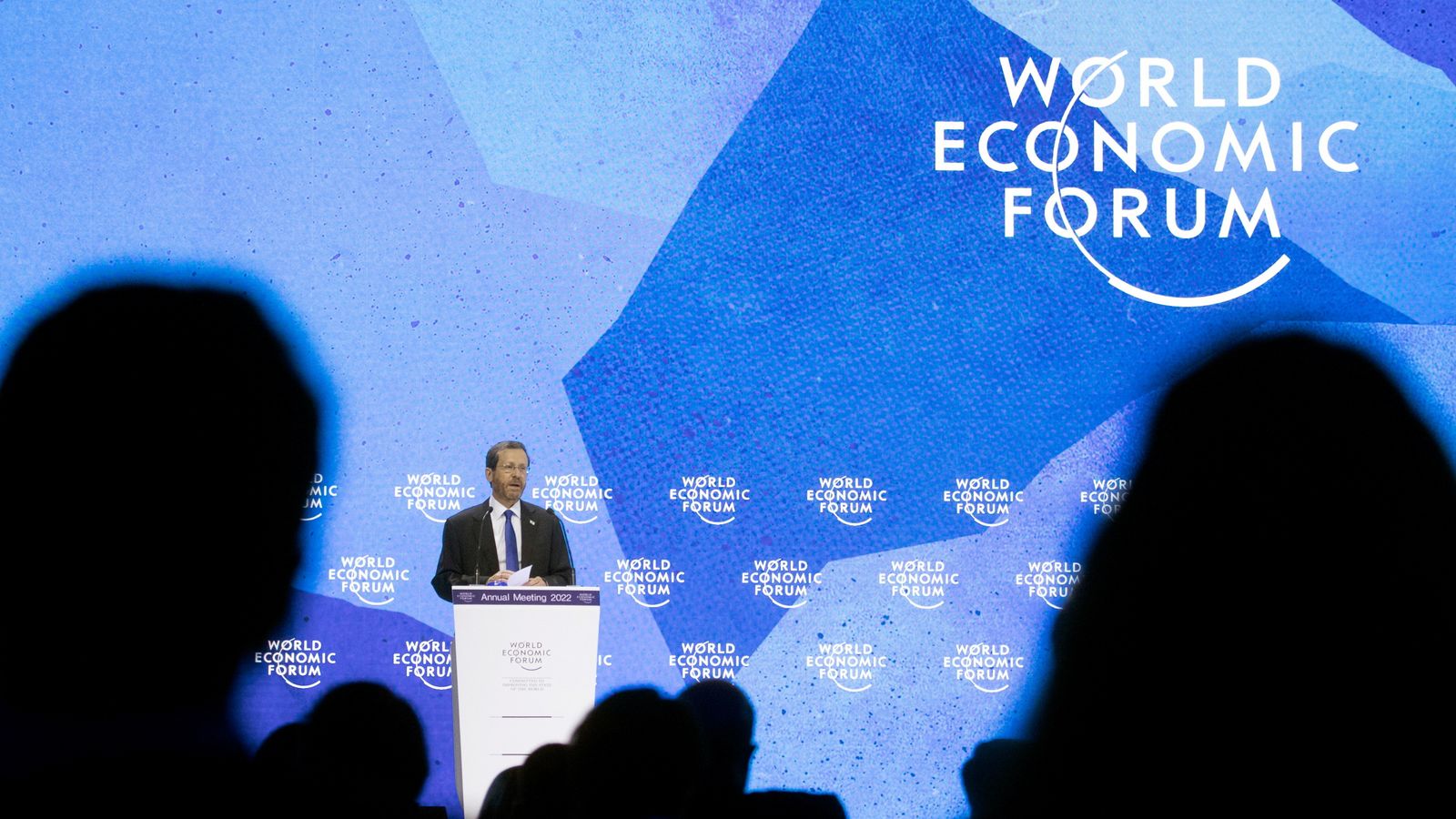What is Davos and what happens at the World Economic Forum meeting?

The World Economic Forum’s annual meeting – more commonly known as Davos – takes place in January, with business and world leaders gathering this year for discussions on the 2023 theme of “cooperation in a fragmented world”.
Here’s everything you need to know.
What is Davos?
Davos is the annual meeting of the World Economic Forum (WEF). Meeting is underselling it slightly – with thousands of attendees in a town that’s invite-only for the duration of the sessions, it’s more cult festival than Zoom catch-up.
The super-size conference includes hundreds of discussions, speeches and panels, plus all-important networking that goes into the night.
According to the WEF website, Davos will “provide a platform to engage in constructive, forward-looking dialogues and help find solutions through public-private cooperation”.
How did it get its name?
Davos, the meeting, is named after Davos, the place – perched in the eastern Alps in Switzerland, it’s Europe’s highest town, home to just under 11,000 people and one of the country’s largest ski resorts.
Once a year in January, the Alpine resort becomes invite-only only, as thousands descend to network and discuss global political and economic challenges.
Advertisement
When is Davos 2023 happening?
This year’s meeting will take place between 16 to 20 January.
Davos 2023 will be a return to the traditional January event, after the meeting was pushed to May in 2022 and held online in 2021.
Read more:
Davos distracted by war in Europe and growing global division
Ukraine’s message to Davos: Buying Russian gas funds rape and murder
What will be discussed this year?
This year’s theme is “cooperation in a fragmented world” and within that are five sub-themes, including the energy and food crises, inflation, technology for innovation, social vulnerabilities and geopolitical risks.
Who will be there?
The invite list includes world leaders, business leaders, young leaders – you get the theme.
According to the WEF’s website, the heads of its 1000 partner companies are invited, alongside public figures, chiefs of international organisations, society leaders, academics and “top thinkers”, making it an invitation list of more than 2,700 people.
Men make up the bulk of Davos attendees – in recent years, women have accounted for about a quarter of the guestlist, WEF said.
What has happened at previous Davos forums?
This year is the 52nd Davos and the 50th to be held in the Swiss town, after the 2021 event moved online and the 2002 meeting was held in New York in a show of solidarity after the 9/11 attacks.
Last year, Ukraine was high on the agenda as Volodymyr Zelenskyy gave a virtual address.
In 2019, Greta Thunberg urged world leaders to act on climate change, telling them “Our house is on fire”. She was on stage again a year later, berating the leaders for doing “basically nothing” to reduce carbon emissions, clashing with Donald Trump.
In 1992, Nelson Mandela and South African president FW de Klerk met at Davos, their first joint appearance outside South Africa and a milestone in the country’s political transition.
Greece and Turkey signed the Davos Declaration in 1988, which saw them turn back from the brink of war, while in 1989, North and South Korea held their first ministerial-level meetings in Davos.